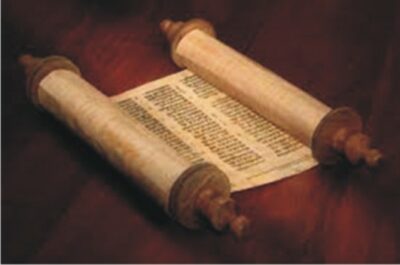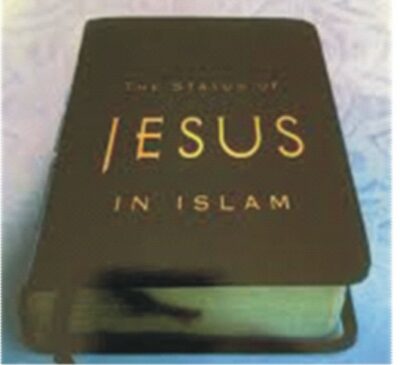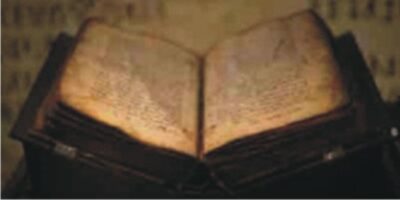The ninth month in the Islamic calendar is Ramadan which holds several significant dates
The Holy Month of Ramadan is expected to begin on 23 March 2023 and is often considered to be one of the most important months in the Islamic calendar.
Taking place over 30 days, this is the month when millions of Muslims fast, not eating or drinking water from sunrise to sunset.
But within the month, there are several days carrying significance, such as Laylat-al-Qadr, and the revelation of the Torah and the Psalms.
But when exactly are they? Here’s what you need to know.
The important dates of Ramadan
Throughout Ramadan, there are several important dates with significance to different sects. The main dates of importance are:
2 Ramadan: when the Torah was bestowed on Moses, according to Islam

In Islam, the Torah, also known as the Tawart, is an Islamic holy book believed to have been sent by God to the prophets and messengers amongst the Children of Israel.
They hold the belief that the Torah is the word of God given to Moses and is always mentioned with respect.
The Torah, and the prophethood of Moses, known as Musa in Islam, is one of the fundamental tenets of Islam.
10 Ramadan: the death of Khadija bint Khuwaylid, the wife of Muhammad
Khadija was the first wife and the first follower of the Islamic Prophet, Muhammad. She is often referred to by Muslims as the Mother of Believers and is one of the most influential figures in Islam.
Khadija was a successful businesswoman in her own right and was married to Muhammad for 25 years.
It is believed that Khadija died in November 619 CE and is said to be around 65 years old at the time of her death.
12 Ramadan: the Gospel was bestowed on Jesus according to Islam

The Gospel, known as the Ingil in Arabic, is described in Islam as one of the four holy books, with the others being the Zabur (Psalms) the Tawart (Torah), and the Quran.
Jesus, known as Prophet Isa in Islam, is an important figure as he is believed to be the penultimate Prophet and messenger of God. In the Quran, Jesus is referred to over 187 times and is said to return in the second coming.
15 Ramadan: the birth of Hasan ibn Ali
Hasan ibn Ali is the firstborn son of two important figures in Islam, Ali, and Fatima.
Hasan ibn Ali is the grandson of the Prophet Muhammad and is considered one of the greatest companions of Islam. In the Shia sect, Hasan is said to have been the second Shia Imam succeeding his father, Ali.
17 Ramadan: the birth of Ibn ʿArabi
Ibn Arabi is said to be born in 1165 in Murcia, Taifa of Murcia, which is now in Spain. He was an Arab Andalusian Muslim Scholar, mystic, poet, and philosopher and is said to have been extremely influential in Islamic thought.
His cosmological teachings became the dominant worldview across the Muslim World, and he is an important figure in Sufism, a sect of Islam. It is said Ibn Arabi contributed massively to Sufi metaphysics.
In medieval Europe, Ibn Arabi was known as Dr. Maximus.
17 Ramadan: the death of Aisha bint Abu Bakr
Aisha was one of a wife of Muhammad after the death of Khadijah. She had an important part in early Islamic history and is portrayed as scholarly and inquisitive. It is believed she contributed to the spread of Islam and served the Muslim community for 44 years after his death.
Aisha is also known for the title of “Mother of the Believers.”
18 Ramadan: the Psalms (Zabur) were bestowed on David (Dawood)

The Zabur, known as the Book of Psalms, is an Islamic holy book belonging to David (Dawood). It is mentioned by name in the Quran three times. Muslims believe 18 Ramadan is when the book was revealed to David.
19 Ramadan: Ali struck on the head during prayer by an assassin with a sword
Ali ibn Ali Talib is one of the most central figures in Shia and Sunni sects of Islam. Ali was the son-in-law and cousin of Muhammad and became of the first believers in Islam at the age of 9 or 11.
Ali ibn Ali Talib was assassinated at the age of 62 or 63 by ibn Muljam who wanted revenge for a previous battle. It is believed that on 19 Ramadan, Ali was struck by a sword and died of his wounds a few days later – however, the timelines are disputed, and it is said that Ali died two or three days later on 21 Ramadan.
Laylat al-Qadr
Laylat al-Qadr, known in English as the Night of Power, the Night of Decree or the Night of Destiny, is one of the holiest days in the sacred month.
This Night of Power is when Muslims believe the Quran was revealed to the Prophet Muhammad; however, the exact date is unknown. It is observed during one of the last ten days of the month, most typically on the odd nights.
Many Muslims believe during this night; you will receive many blessings and the mercy of God in abundance.
This night is better than a thousand months, according to Muslims, which interpreted that praying throughout this night is rewarded equally with praying for a thousand months – just over 83 years, i.e., a lifetime – so many Muslims spend this night in prayer.
(Source: https://www.nationalworld.com/culture/important-dates-ramadan-night-of-power)


COMMENTS